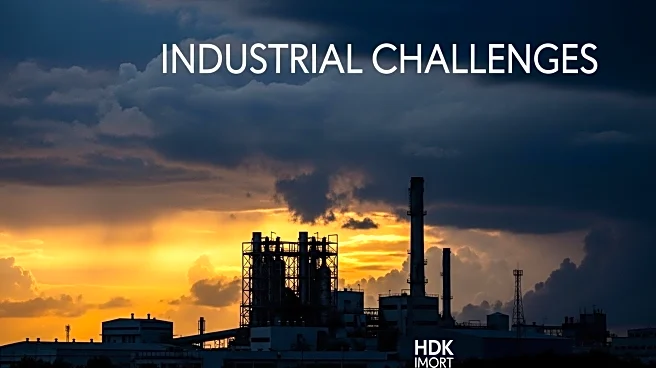What is the story about?
What's Happening?
INEOS has announced the reduction of 60 skilled positions at its Acetyls plant in Hull, representing 20% of its workforce. The decision is attributed to escalating energy costs and the influx of low-cost imports from China and the US, which are undermining the competitiveness of UK and European markets. Despite a recent £30 million investment to transition from natural gas to hydrogen, reducing emissions significantly, INEOS faces challenges due to the absence of protective tariffs against these imports. The company is urging the UK Government and European Commission to implement anti-dumping tariffs to safeguard the chemical sector.
Why It's Important?
The job cuts at INEOS highlight the broader industrial challenges faced by the UK and European chemical sectors, exacerbated by high energy costs and competitive pressures from imports. The situation underscores the need for strategic trade defense measures to protect domestic industries from deindustrialization. The potential loss of factories and jobs could have significant economic repercussions, affecting local communities and the broader industrial landscape. The call for tariffs reflects a critical need for policy intervention to maintain industrial viability and employment.
What's Next?
INEOS is advocating for immediate action from the UK Government and European Commission to introduce tariffs that would protect the chemical industry from unfair competition. The company warns that without such measures, more sites may close, leading to further job losses. The focus will be on supporting affected employees and ensuring the long-term sustainability of the Hull site. The broader industry will be watching closely for governmental responses and potential policy shifts to address these challenges.
Beyond the Headlines
The situation at INEOS reflects a deeper structural crisis within the chemical industry, where environmental investments are at risk due to competitive pressures. The transition to hydrogen represents a significant step towards decarbonization, yet the lack of trade protection threatens these advancements. The ethical dimension involves balancing environmental progress with economic stability, highlighting the complex interplay between industrial policy and sustainability goals.















